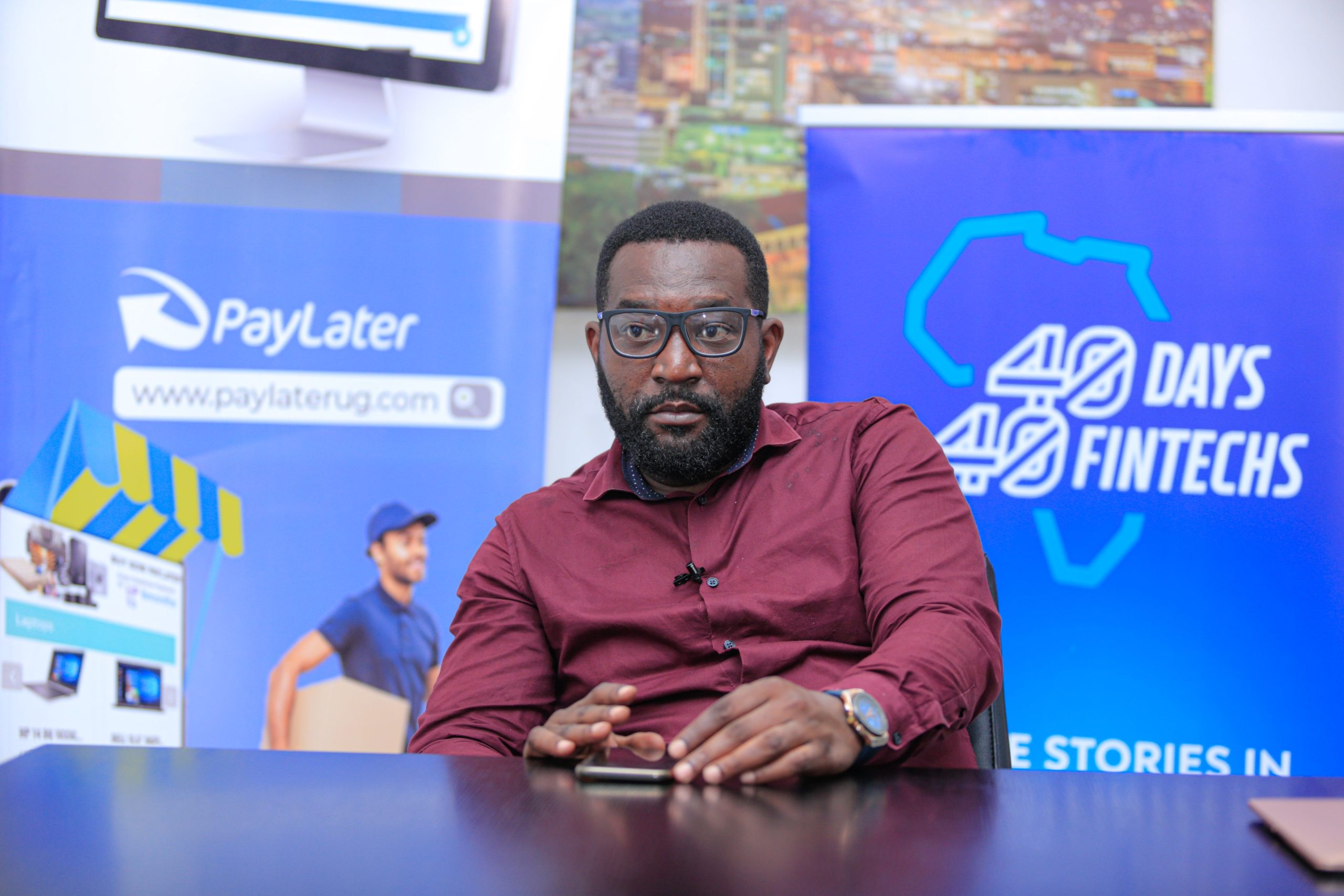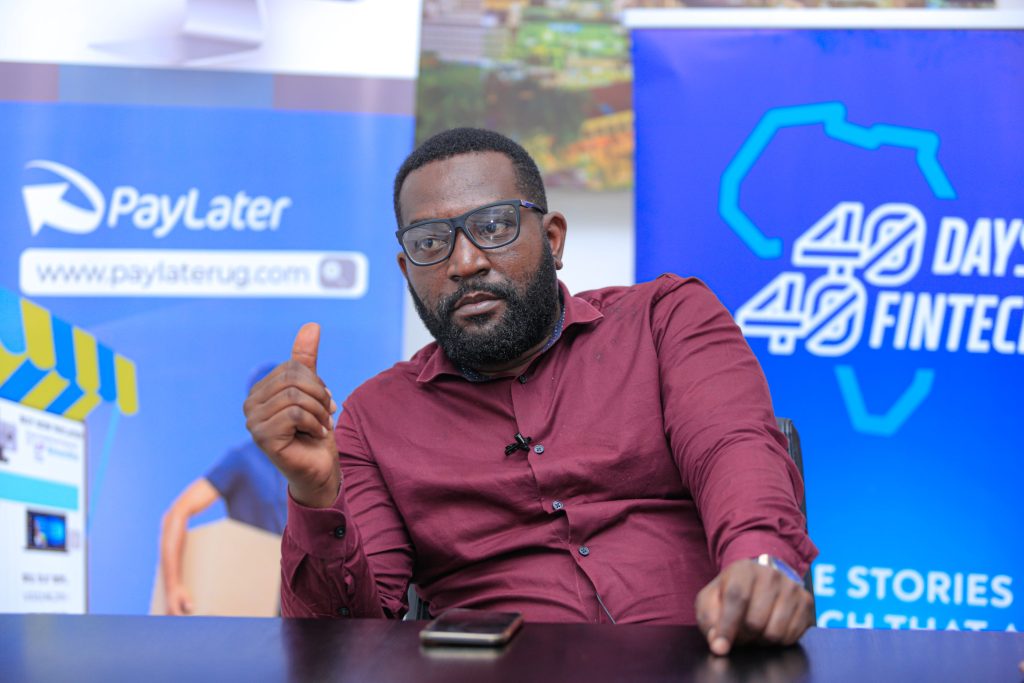PayLater; Uganda’s Online Shop That Allows Installments

Our Reporter.
Many young corporates harbor dreams that would satisfy their heart’s desires. They would like to have nice cars, trendy phones, beautiful TV sets, durable furniture, name it! But their meager salaries are only enough for the daily essential needs. So, they keep dreaming!
However, PayLater Uganda has come to make these dreams a reality by introducing an online buy-now pay-later model of property acquisition.
Started in 2021, this e-commerce platform has made it easy for Ugandans to purchase commodities ranging from electronics to kitchen appliances to smartphones to furniture, car tyres to beauty products at their own pace and convenience.
“It is a fact that most Ugandans cannot afford to buy genuine commodities in one go. So, we introduced this digital lease-to-own platform where they can pay in installments and acquire the property of their dreams,” says Aaron Kasozi, the PayLater CEO.
Convenient
Kasozi says that they have about 15 approved suppliers of genuine branded products. So, if someone wants a product, they just visit www.paylaterug.com where all product categories are listed.
The customer just needs to create an account, generate password and then apply for a product of their choice. Then the system picks customer details such as employment, how much they earn, next of kin, residential address, among others.
“Once the application is received, we have to vet the customer through the Know-Your-Customer system where they are asked for a copy of national ID, bank statement and other documented income sources and work ID. If a customer passes the credit rating process, then we can go to the next step,” he says.
Once vetting is done, the customer is contacted and written to formally to tell them that they qualify for a product or not.
“If they qualify, we sign a contract with the client and we engage the supplier and the customer pays the initial deposit. We break down the value of the product into six equal installments to ensure that the client pays up within six months,” Kasozi says, noting that only digital payments are accepted through FlexiPay, Visa, Mastercard and mobile money. They don’t accept cash at all.
Kasozi further explains that they work within a 30% rating whereby if someone earns Shs 1m per month, they should only qualify for a product where they will need to make monthly remittances of Shs 300,000.
To reduce risks, Kasozi says they work hand-in-hand with the credit reference bureau but also mainly focus on people in employment where due diligence can easily be done.

So far, more than 300 people have been able to own different products through this platform.
“It is very promising. We have had over 190,000 website hits and every month we get over 800 applications. Unfortunately, most of them do not qualify,” he said, before complimenting the 40Days40FinTechs initiative for extending a helping hand to startups that normally do not have the resources for marketing, customer education and awareness.
40-Days 40-FinTechs
PayLater is the 11th participant in Season Three of the #40Days40FinTechs initiative that seeks to shine a light on the unique stories about innovations that are enabling ever more people to join the digital economy space.
The initiative is run by HiPipo in partnership with the Level One Project, Mojaloop, ModusBox, and Crosslake Technologies with support from the Gates Foundation.
According to the HiPipo CEO Innocent Kawooya, initiatives such as PayLater are testament to the rising cases of adoption of online trading and other digital financial services.
“PayLater is a well-thought-out initiative because it touches the nerve of many young people. Many people are looking out for genuine products that they can acquire conveniently and PayLater provides just that,” Kawooya said.
He further called on digital innovators and FinTechs around East Africa to embrace 40 Days 40 FinTechs as Season three covers physical destinations in Uganda, Kenya, Tanzania, Burundi and Rwanda.
Kawooya, further noted that this year’s edition is cementing achievements of the previous editions – where over 60 FinTechs have been transformed – but also building on this success to leverage digital financial inclusion in East Africa and beyond.
“As HiPipo, our extensive effort and advocacy is partly for the intention of championing digital innovation and interoperable instant and inclusive payment systems (IIPS) in Africa to a point where our innovators enjoy and achieve sound profit margins to help them keep designing and deploying affordable and inclusive financial services for the poor,” Kawooya said.
He added: “It is exciting to see what the participants have to offer. And again, various stakeholders are on hand for more discussion and debate, with this time round extra insight from the likes of banks and MNOs. We are already having extensive discussions on Instant and Inclusive Payment systems, Central Bank Digital Currencies(CBDC), advancing convenience for users, cross-border payments and on micro-lending products (especially those offering facilities to persons and communities that are still on the bylines of finance and trade for example; women, PWDs and other SIGs),”
The #40Days40FinTechs platform is run under HiPipo’s Include Everyone program that also encompasses other initiatives such as FinTech Landscape Exhibition, Women in FinTech Hackathon, Summit & Incubator and the Digital and Financial Inclusion Summit and Digital Impact Awards Africa.
The platform aptly provides a setting for the various players and stakeholders involved in digital and financial technology to exhibit their products & Services and also share their ideas on how more of us, especially those unserved and underserved by the present financial systems, can be brought into the fold. It also offers participants useful tools and an introduction to the industry’s emerging technologies, such as Mojaloop Open Source Software, and guidance from Level One Project foundational material. The skills gained from this initiative cover Level One Project Principles, Instant and Inclusive Payment Systems (IIPS), Inclusive Finance and FinTech in general.
